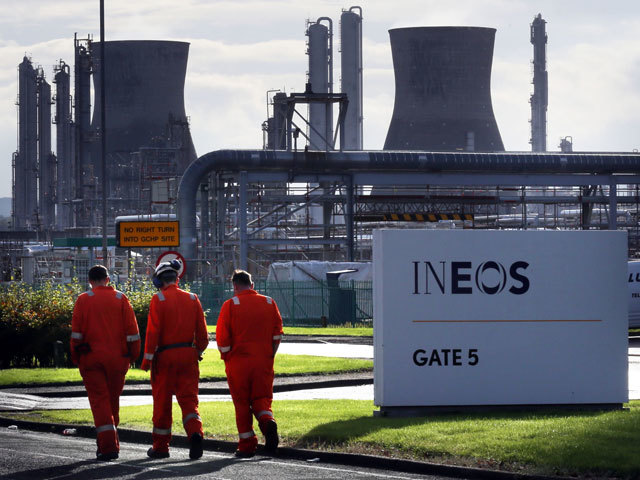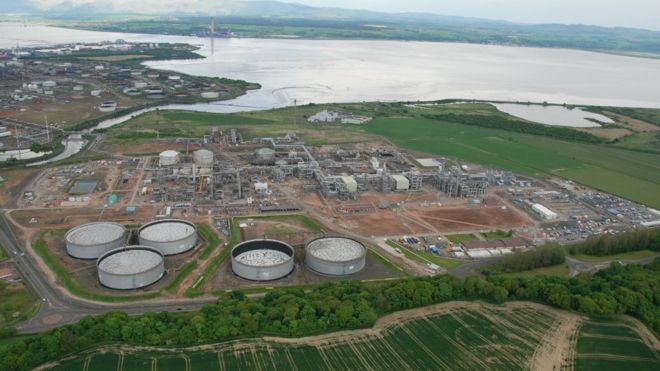
Petrochemicals giant Ineos yesterday launched a staunch defence of its track record as an employer and infrastructure owner after agreeing to buy the Forties pipeline system from BP for £200million.
Ineos also said the deal was “not the extent” of the firm’s ambitions in the North Sea and that the company was still “actively involved” in looking at other acquisitions.
The Forties deal will give Ineos control of a pipeline which delivers about 40% of the UK’s North Sea oil and gas.
The 235-mile Forties system links 85 North Sea oil and gas assets to the UK mainland and the Ineos site in Grangemouth.
Ineos will pay BP £100million on completion and an earn-out arrangement over seven years that could total £100million.
Ineos will also assume all decommissioning liabilities.
The transaction is expected to go through in the third quarter of 2017.
Unite Scottish secretary Pat Rafferty has warned that the acquisition is bad for the country because it would give one man, Ineos chairman Jim Ratcliffe, the power to “bring the UK to a standstill”.
Mr Rafferty has also voiced concerns about the welfare of employees who would transfer to Ineos.
Unite was embroiled in two major disputes with Ineos over the treatment of workers at Grangemouth in 2008 and 2013. During the second dispute, Ineos threatened to close the facility.
Mr Rafferty yesterday urged the Scottish and Westminster parliaments to carry out urgent inquiries into the sale.
Tom Crotty, a director at Ineos, said yesterday that Unite’s claims would be “laughable, if they weren’t damaging”.
Mr Crotty said: “Unite’s comments have been outrageous. Look at what we have done at Grangemouth – we have transformed it. We have invested more than £1billion since taking over in 2006 and have given the plant a future it never had before.
“We think we have done a good job and the facts prove we are a good owner. The health and safety performance is the best it has ever been.
“It’s clear that there are some people at Unite who do not think much of us and that will continue to be the case. We’re not sure what we can do about that other than to keep refuting their claims.”
Mr Crotty said Ineos would not make dramatic changes to the way Forties is run.
He also said the 300 BP employees who operate and support the system at the Kinneil and Dalmeny terminals, Grangemouth, Aberdeen and offshore would transfer over to Ineos.
Mr Crotty said: “We’re not coming into ownership with the view we are going to decimate the asset. It’s about investing and protecting an asset which we think is very important.
“It’s a key piece of infrastructure and we want to increase its life span and make the system as efficient as possible. The facilities are important for us.”
Twenty percent of the oil that passes down the pipeline feeds the Ineos refinery to provide 80% of Scotland’s fuel.
BP chief executive Bob Dudley said the change in ownership would enable Ineos to produce “greater efficiencies and help secure a competitive long-term future” for the system.
Mr Crotty also said Ineos still intended to add more assets to its North Sea portfolio.
Ineos announced its arrival in the North Sea in 2015 when it bought 12 fields from Dea, the German-based oil and gas firm owned by the Russian oligarch-backed LetterOne Group.
The deal involved stakes in the Breagh and Clipper South gas fields in the southern North Sea.
Mr Crotty said: “We have made no secret of our North Sea ambitions. If we can do another good deal we will watch that space. We are still actively involved in looking at other options. The Forties deal is not the extent of our ambition.”
Recommended for you

